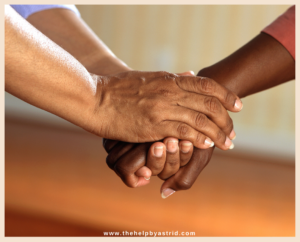
We have all heard about previous studies that suggest that those who do good deeds have better physical and mental health compared to those who don’t spend as much time helping others. Finally, we have scientific proof. A recent study reveals that there are science-backed benefits to helping others.
During the pandemic, we experienced a surge of charity and generosity from people around the world who have gathered donations, volunteered their time, and pooled together resources to help those who were more challenged through the global pandemic. There were a lot of donations, volunteer work, contributions, and over-all acts of kindness, especially during the early months of the year when we were at peak pandemic struggles. A lot of people lost their livelihoods and jobs and had to rely on the kindness of strangers in order to put food on the table. Now, things are slowly going back to normal and we are steadily getting back on our feet.
Kindness is important for a society to function. Lead author Bryant P.H. Hui, Ph.D., a research assistant professor at the University of Hong Kong has this to say about doing acts of kindness. “Prosocial behavior — altruism, cooperation, trust, and compassion — are all necessary ingredients of a harmonious and well-functioning society. It is part of the shared culture of humankind, and our analysis shows that it also contributes to mental and physical health.”
Why is kindness good for us?
The good feeling we get from doing acts of kindness actually has a name, it’s called “helper’s high.” It is the decrease in stress and the increase in happiness that we experience after doing a good deed. After a “helper’s high” our body experiences lowered stress response and a significant increase in protective antibodies associated with improved immunity. You can reap the benefits even for an hour after because antibody levels remained high for an hour afterward.
You don’t need to be a member of a charity organization or a part of government social work services in order to do good work. There are everyday good deeds that you can do to reap the benefits of the “helper’s high”. Here are some of them:
- Share your old books with a public school or if you have children’s books, share them with a daycare center.
- Donate old toys to a local orphanage or the children’s ward of a hospital.
- Plant a tree. Plants more than one if you’re feeling extra generous. This good deed ultimately helps future generations
- Run errands for your parents or senior aunts and uncles. They pay in great stories.
- Send a casserole (or any food) to your neighbor so they won’t have to think about dinner for one night.
- Send food packs to a school’s services and utility team.
- Leave a generous tip for your delivery person.
- Send pet food to a pet sanctuary. They always need it.
- Send bread to a hospital, or better yet send sandwiches. These places are very busy and people rarely have time to sit down and eat
What are your good deeds for the year? Share them with us in the comments. Remember to work smart and be a blessing to someone today. Stay safe and healthy!
Written by Jaie O. TheHelp